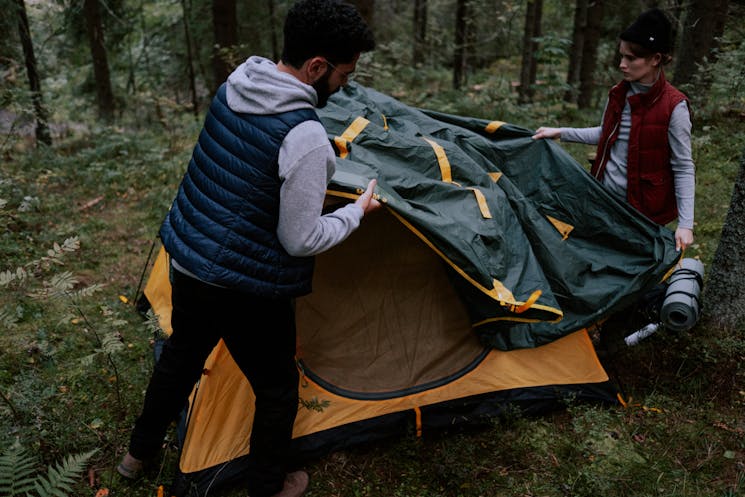Home Care for Dogs: Tips for Keeping Your Pet Happy, Healthy, and Secure

When it comes to keeping your dog happy and secure, home care plays a crucial role in their well-being. Dogs thrive in clean, safe environments where they can play, rest, and explore comfortably. From feeding them the right diet to providing enough physical and mental stimulation, every aspect of their home life impacts their overall health.
Here’s how you can ensure their well-being and safety:
Proper Nutrition: Feeding Your Pet Right
A balanced diet is the foundation of your dog’s overall well-being. Just like humans, dogs require various nutrients to maintain their energy levels, muscle health, and immune system. Selecting the right food based on their breed, age, and size can make a huge difference. For example, puppies require food rich in nutrients to support their growth, while senior dogs may benefit from food that’s easier to digest.
Always ensure you’re feeding the correct portion size to prevent overfeeding or underfeeding, both of which can lead to health issues like obesity or malnutrition. Offering healthy treats can also help with training, but remember to keep those portions controlled. Proper nutrition isn’t just about what you feed your dog; it’s about creating a well-rounded, balanced diet tailored to their specific needs.
Keeping Your Their Living and Playing Area Clean
Keeping a clean environment is vital for your dog’s comfort and safety. This includes regularly cleaning their bedding, toys, and areas where they rest. The cleanliness of your dog’s living space impacts their overall happiness and reduces the risk of infection, skin irritation, or allergies. A common issue for pet owners is managing waste in outdoor spaces. Professional dog poop scoop services can make this task much easier. These services remove waste from your yard, preventing the buildup of harmful bacteria that can lead to health problems. By using such services, you can rest assured that your dog has a clean, hygienic area to play and relax. It’s an efficient way to keep your living space neat while focusing on other essential aspects of your dog’s daily routine.
Regular Exercise and Playtime
Exercise is essential for your dog’s physical health and emotional well-being. Dogs need a variety of activities, including walks, runs, and interactive play, to burn off excess energy. This helps maintain a healthy weight, reduces the risk of chronic diseases, and prevents behavioral problems that can arise from inactivity. Physical activities like fetching a ball or running in an open area can provide much-needed stimulation. Keep in mind that the space where your dog exercises should be clean and free of waste to make their playtime enjoyable and safe. A well-exercised dog is not only happier but also more relaxed, reducing the likelihood of destructive behavior at home.
Regular Vet Check-ups
Routine visits to the vet are essential for monitoring your dog’s health. Regular check-ups help identify any potential issues early, allowing you to address them before they become serious problems. During these visits, your vet will administer necessary vaccinations, check for parasites, and perform routine blood work to screen for underlying health concerns. It’s important to stay on top of these appointments, especially as your dog ages. Preventative care, like flea and tick prevention, dental cleaning, and annual health screenings, is key to keeping your dog in optimal condition. Regular check-ups also give you a chance to discuss any changes in your dog’s behavior or diet that might signal health issues.
Grooming and Hygiene: Bathing and Coat Care
Grooming is an important aspect of home care, ensuring your dog stays clean and comfortable. Regular baths, brushing, and nail trims are necessary for most dogs, depending on their breed and coat type. Long-haired dogs, for instance, require frequent brushing to prevent tangles and matting, while short-haired dogs may need less attention but still benefit from regular grooming. Bathing your dog with the right products for their coat and skin type helps prevent skin irritations and keeps them smelling fresh. Trimming nails is essential to avoid overgrowth, which can cause discomfort or even injury. Keeping your dog’s coat clean and well-maintained not only helps with hygiene but also supports their overall well-being.
Mental Stimulation and Enrichment
Mental stimulation is just as important for your pet’s well-being as physical exercise. Dogs need to engage their minds to prevent boredom and associated behavioral issues like chewing or excessive barking. Interactive toys, puzzle feeders, and training exercises are great ways to challenge your dog mentally. Regular training sessions not only reinforce positive behavior but also provide your dog with a sense of accomplishment. Canines, particularly working breeds, thrive when they have a task to complete. You can also introduce new activities like learning new tricks or scent-based games to keep their minds sharp. Keeping their environment mentally engaging ensures that your dog remains mentally healthy, happy, and balanced.
Socialization with Other Dogs and People
Socialization is an essential part of a dog’s development, and it plays a significant role in how they interact with the world around them. Exposing your pet to new people, dogs, and environments in a controlled manner helps them become well-adjusted and confident. Positive social experiences teach your dog proper behavior in different situations, preventing fear-based reactions or aggression. If you’re introducing your dog to a new dog, always monitor their interactions and ensure they’re both comfortable. Gradually increasing the complexity of social situations, whether through dog parks, playdates, or training classes, helps your dog become more adaptable and friendly. Socialization is a lifelong process and should be continued as your dog matures.
Creating a Safe Home Environment for Your Dog
A safe home environment is essential for your dog’s well-being. There are many hazards around the house that you might not immediately think of. Items like cleaning supplies, electrical cords, small objects, or even certain houseplants can pose risks. Dog-proofing your home means removing or securing dangerous items to prevent accidental injury. Also, consider creating a designated resting area for your dog to feel secure and calm, away from foot traffic or potential stressors. Gates or crates can be helpful for managing access to certain areas of the home. Whether indoors or outdoors, ensure your dog’s environment is safe, calm, and free of potential threats that could cause harm.
Home care for your dog is essential to their happiness, health, and security. By focusing on proper nutrition, regular exercise, and maintaining a clean environment, you can ensure your dog lives a fulfilling life. Don’t forget the importance of regular vet visits, grooming, and mental enrichment to keep your dog in top shape. Socializing your dog and creating a safe environment also play a huge role in their well-being. By implementing these practices, you can provide a loving, safe, and healthy environment for your dog to thrive in.





















